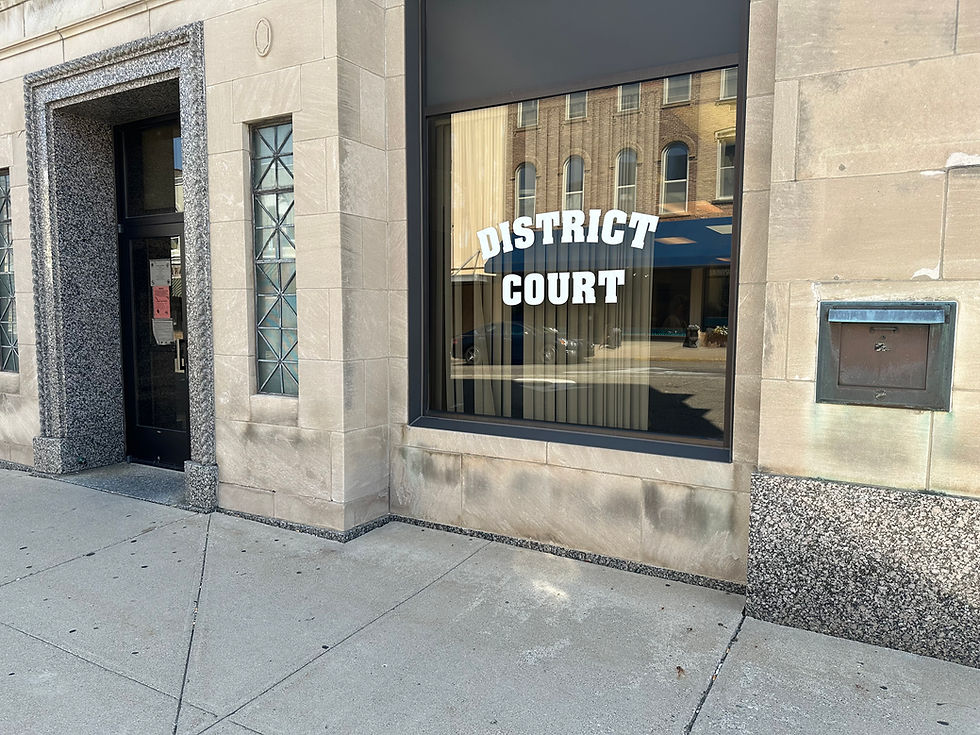Unintended Consequence: Hearing Targeting Township Clerk Reveals Weaknesses in Conduct of MI Elections
- Aug 13, 2025
- 4 min read


By Kristine Christlieb, MFEI News & Commentary Editor
August 13, 2025
HILLSDALE, MICH., August 11 — Cross-examination of Michigan Bureau of Elections (BOE) Director Jonathan Brater and other witnesses continued Monday in a probable cause hearing involving multiple felony charges against a former Adams township clerk and the legal counsel she consulted.
Stephanie Scott and her attorney, Stefanie Lambert, have been in a four-year battle with Michigan’s Department of State, a battle that has escalated up to Attorney General Dana Nessel who now is alleging Scott and Lambert illegally transmitted data from an electronic pollbook, among other allegations.

The proceedings associated with the felony charges began with a probable cause hearing that commenced briefly in December 2024 but which didn't reconvene until July 11. Testimony continued on Monday.
A crucial moment in the sequence of events leading up to the felony charges occurred on October 25, 2021, when Bureau of Elections Director Jonathan Brater stripped former clerk Stephanie Scott of her election responsibilities, justifying this action by claiming she had not confirmed she “would sign certificates confirming Public Accuracy Testing had been completed.” Brater also claimed she had refused to comply with at least two other directives.
More than two years later, in May 2024, Attorney General Dana Nessel took Brater’s attacks against Scott a step further, bringing criminal, jail-time charges against her and her attorney Stefanie Lambert.
Attorney General Nessel’s Charges Against Scott and Lambert
Charges against Scott
Charges against Lambert
|
As township clerk in 2020, Scott had concerns about the 2020 election and wanted to preserve the voting records and equipment. Brater testified that Scott’s public statements and other actions led him to believe she was not going to perform her duties as instructed.
Brater also admitted in court he never attempted to speak with Scott about her concerns, he only communicated with her via lengthy, written directives and email.
In an October 15, 2021, five-page letter, Brater claimed Scott was refusing to allow a Hart Intercivic technician to perform preventive maintenance on her voting machines. Perhaps already considering the possibility of criminal charges, Brater copied the Attorney General's office on the letter. He told Scott, “Hart is contractually required to provide” the preventive maintenance.
Defense Attorney Kurt Olsen was able to establish Brater was overreaching in his claims about the contract with Hart. His questioning about the precise terms of the contract revealed the “user” of the tabulator could perform the necessary maintenance; the contractor could be involved “as needed.”

“So your statement [to Scott] that the contractor must perform biannual maintenance is not accurate, is it?” asked Olsen.
Instead of answering the direct question with a “yes” or “no,” Brater gave an extended answer that ultimately was nonresponsive. That became his habit. Brater is an accomplished attorney, a graduate of University of Michigan Law School, where he was executive editor of the prestigious Michigan Law Review.
Olsen finally complained to the judge, “If he [Brater] keeps filibustering, we’ll be here all day.” Judge Megan Stiverson agreed and instructed Brater to answer "yes" or "no."
Brater also was asked about Ben Cotton’s analysis of the 2020 election. Cotton, who is a computer expert who investigates election data, determined there was an 11.5% difference between township voter data and the state’s reported results. Olsen asked Brater, “Did you ever undertake any analysis of Mr. Cotton’s investigation?” Brater said, “Not that I remember.”
Voting Record Retention
Olsen then turned to federal and state law related to record retention, one of Scott’s concerns from the 2020 election. The Civil Rights Act of 1960, specifically 52 U.S.C.20701 requires retention of “all records related to voting in federal elections.” Michigan state law reinforces that federal statute.
Olsen asked a number of questions related to record retention. “Before issuing a directive [to clerks] to delete EPB [electronic pollbook] flash drive data, did you consult with DOJ on the legality of your directive?” Brater said, “I don’t remember.”
Olsen then asked, “Have you undertaken a legal analysis of what constitutes an election record?” Brater admitted he had not.
It was Scott’s concern about retaining voting records and Brater’s directive to delete data that prompted her to consult attorney Stefanie Lambert.
Revelations about 2020 Provisional Ballots
Another witness, a former BOE employee, admitted his work caused provisional ballot records from the 2020 election to not be saved correctly. More than a year later, he was forced to try to recreate the results by turning to clerks for their original records from the election.
In contacting the clerks, he learned that some had deleted the information while other clerks didn’t bother to respond. Olsen asked, “How many precincts were involved.” The man said he didn’t know.
Olsen asked if the incident was the reason he was no longer employed by the Bureau of Elections. “No, I moved to Grand Rapids and didn’t want to commute to Lansing,” he said.
On redirect, David Cunningham, representing the AG’s office, tried to downplay the incident by asking, “Did the problem of the provisional ballots affect the outcome of the election?”
What Comes Next?
After all the witnesses have been questioned, both the state and the defense will submit written closing arguments. Judge Stiverson will then decide whether there is enough evidence to believe a crime has been committed and to warrant going forward with a trial.
The tiny Hillsdale courtroom was filled to overflowing on Monday, literally, standing room only. A few of the people in the audience were from various media outlets, but most were there in support of the two women facing felony charges and jail time. After more than four years of legal wrangling with the state, their fates still hang in the balance.
















Another unintended consequence from these hearings . . . names of officials responsible for certain actions are revealed which allows for additional investigation.